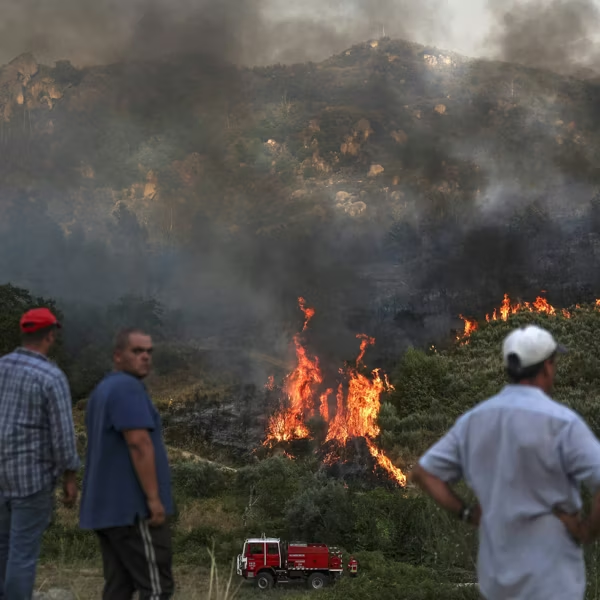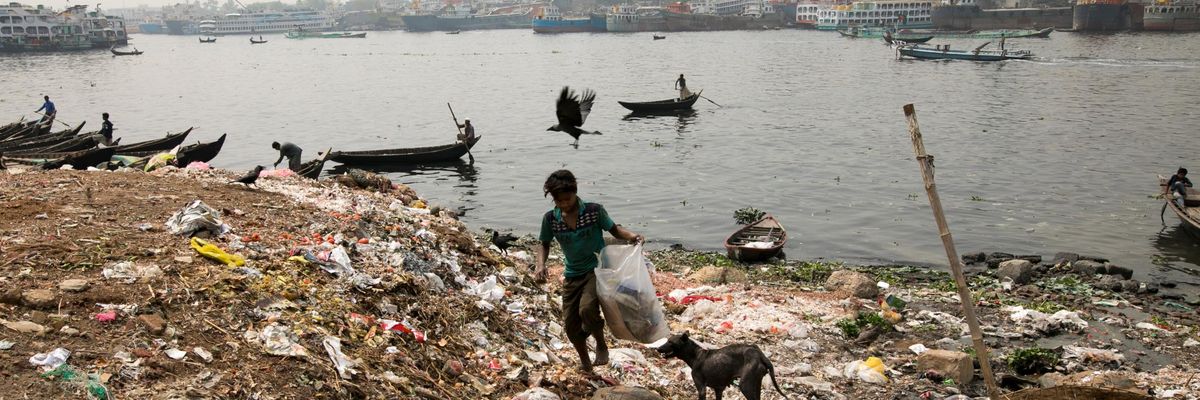Less than two weeks before a major meeting in Geneva, top environmental groups on Tuesday argued that the wealthy nations most responsible for the global biodiversity crisis should pour billions more dollars per year into addressing the destruction of nature in developing countries.
"To move towards a nature-positive economy, we need to spend more directly on biodiversity conservation and end pressure on nature from harmful financial flows and subsidies."
"Wealthy nations must agree to a viable path to direct at least $60 billion in public funding to developing nations to prevent extinctions, safeguard clean water, and maintain the healthy natural systems on which communities rely," declared Campaign for Nature director Brian O'Donnell.
Both O'Donnell and Bruno Oberle, director general of the International Union for Conservation of Nature, emphasized that as rich countries refuse to rein in unsustainable consumption habits, Global South communities in biodiversity hotspots largely bear the consequences.
Oberle also noted that "providing local and Indigenous communities with the necessary means to conserve nature is not only a moral obligation, but also a sound investment that will generate high returns for all of us."
Marco Lambertini, director general of WWF International, highlighted some of those returns.
"To move towards a nature-positive economy, we need to spend more directly on biodiversity conservation and end pressure on nature from harmful financial flows and subsidies," he said. "We are finally beginning to understand that this is not only essential for nature: It will safeguard humanity, help prevent pandemics, and create essential new jobs."
The $60 billion figure was "calculated in consultation with leading economists and based on a growing body of economic studies about the benefits of investing in nature protection," the environmental groups explained in a statement, noting research which shows that "30% of global threats to biodiversity are generated by international trade."
The organizations' demand for investment comes ahead of a two-week meeting previously scheduled for January that is set to begin in Switzerland on March 14. It will focus on the post-2020 global biodiversity framework, an international strategy to tackle the crisis.
Framework talks have been hampered by the Covid-19 pandemic. However, over 100 countries wrapped up a round of negotiations in October and issued the "Kunming Declaration," which advocacy groups welcomed while also warning that "ambition urgently needs to ramp up."
Related Content
Nature Defenders Warn Global Biodiversity 'Kunming Declaration' Lacks Urgency
Jessica Corbett
Countries that have signed on to the Convention on Biological Diversity intend to finalize the framework at a summit in Kunming, China, now planned for late April and early May.
Comparing the framework to the 2015 Paris agreement, BirdLife International CEO Patricia Zurita said Tuesday that "ending the biodiversity crisis is as important to the future of humanity as stopping climate change."
"To stop biodiversity loss and achieve a nature-positive economy, we must close the biodiversity funding gap," Zurita added, explaining that the $60 billion per year "needs to be part of a broader and holistic package and include eliminating harmful incentives, including subsidies, and other creative financial mechanisms and tools."
According to the groups, adequately addressing the biodiversity crisis would cost about $844 billion annually--$711 billion more than is currently being spent.
--and less than $10 billion of current spending is international finance.
Meanwhile, research released last month found that governments spend at least $1.8 trillion a year on subsidies that drive the destruction of nature.
The joint demand for countries such as Canada, Japan, the United Kingdom, the United States, and members of the European Union to dramatically increase international finance for biodiversity came a day after a new Intergovernmental Panel on Climate Change (IPCC) report, which gave a stark assessment of the planet's health.
Noting that the biodiversity and climate crises are related, the IPCC said that human-caused global heating and worsening extreme weather are already endangering species and ecosystems worldwide, and those risks will continue to escalate as temperatures rise.
Parties to the Paris agreement most recently met in Glasgow, Scotland for COP26 late last year. While some campaigners were critical of the final deal, an environmentalist behind the biodiversity funding call pointed out that the summit still "brought new commitments and funding for climate action, with a strong focus on the role of nature as a solution."
James Roth, senior vice president of global policy and government affairs at Conservation International, also said that "as the world prepares to meet in Kunming, we must raise our ambition once again for both action and funding for biodiversity."
"This funding is an investment in the future we all want," he added. "The time to act is now--there is not a moment to waste."





